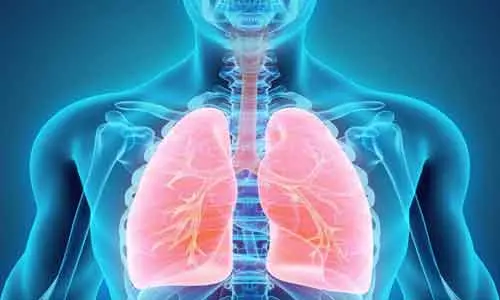- Home
- Medical news & Guidelines
- Anesthesiology
- Cardiology and CTVS
- Critical Care
- Dentistry
- Dermatology
- Diabetes and Endocrinology
- ENT
- Gastroenterology
- Medicine
- Nephrology
- Neurology
- Obstretics-Gynaecology
- Oncology
- Ophthalmology
- Orthopaedics
- Pediatrics-Neonatology
- Psychiatry
- Pulmonology
- Radiology
- Surgery
- Urology
- Laboratory Medicine
- Diet
- Nursing
- Paramedical
- Physiotherapy
- Health news
- Fact Check
- Bone Health Fact Check
- Brain Health Fact Check
- Cancer Related Fact Check
- Child Care Fact Check
- Dental and oral health fact check
- Diabetes and metabolic health fact check
- Diet and Nutrition Fact Check
- Eye and ENT Care Fact Check
- Fitness fact check
- Gut health fact check
- Heart health fact check
- Kidney health fact check
- Medical education fact check
- Men's health fact check
- Respiratory fact check
- Skin and hair care fact check
- Vaccine and Immunization fact check
- Women's health fact check
- AYUSH
- State News
- Andaman and Nicobar Islands
- Andhra Pradesh
- Arunachal Pradesh
- Assam
- Bihar
- Chandigarh
- Chattisgarh
- Dadra and Nagar Haveli
- Daman and Diu
- Delhi
- Goa
- Gujarat
- Haryana
- Himachal Pradesh
- Jammu & Kashmir
- Jharkhand
- Karnataka
- Kerala
- Ladakh
- Lakshadweep
- Madhya Pradesh
- Maharashtra
- Manipur
- Meghalaya
- Mizoram
- Nagaland
- Odisha
- Puducherry
- Punjab
- Rajasthan
- Sikkim
- Tamil Nadu
- Telangana
- Tripura
- Uttar Pradesh
- Uttrakhand
- West Bengal
- Medical Education
- Industry
Low dose morphine capsules may help drivers in refectory breathlessness: Study

Chronic breathlessness is a disabling syndrome that profoundly impacts patients' and caregivers' lives
Driving is important for most people, including those with advanced disease.
Researchers have found that regular, low-dose, sustained-release morphine safely reduces breathlessness even in drivers.
Being able to drive a vehicle has been identified as an important issue for people with chronic breathlessness, a problem frequently encountered by people with a range of life-limiting illnesses including cancer, end-stage respiratory disease, chronic heart failure and some neuro-degenerative diseases.
Australia is the first country in the world to approve regular, low-dose, sustained-release morphine capsules for the treatment of chronic breathlessness, and researchers at Flinders University connected to the Palliative Care Clinical Studies Collaborative (PaCCSC) have interviewed patients with chronic breathlessness and, separately, their caregivers to learn their thoughts on what tasks would be achievable if their chronic breathlessness was better controlled.
More than 300,000 people across Australia who suffer from chronic breathlessness—and especially the 75,000 who are housebound with extremely limited day-to-day activity—could benefit from the research being conducted.
"Driving is a particularly valued part of most people's lives and helps to maintain a sense of normality and independence when there are lots of losses as people experience a life-limiting illness," says Professor David Currow, who leads PaCCSC.
"Any therapy that could reduce the sensation of chronic breathlessness safely is beneficial in optimising such things as driving and will be very beneficial to these patients."
The PaCCSC team has recently issued papers that support the use of regular, low-dose, sustained-release morphine to help people with chronic breathlessness in performing tasks such as driving vehicles.
"Although people have fears surrounding driving while taking morphine, regular low-dose sustained-release morphine does not seem to impact on patients' self-perceived driving ability," says Professor Currow.
The key paper—"Patients' and caregivers' experiences of driving with chronic breathlessness before and after regular low-dose sustained-release morphine: A qualitative study,' by Diana Ferreira, Jason Boland, Slavica Kochovska, Aaron Honson, Jane Phillips and David Currow—has been published in Palliative Medicine.
This study continues long-term research that has been undertaken by Flinders University since 2002, measuring the benefits and harms of using a regular low-dose, extended-release morphine capsule to relieve the debilitating effects of chronic breathlessness.
"Chronic refractory breathlessness affects every aspect of life, even at rest or with minimal exertion despite optimal treatment of the underlying causes," says Professor Currow, who has spent the past 23 years investigating better treatments for the condition.
"As the population ages, more people will experience chronic breathlessness as a result of emphysema, heart failure and cancer. Finding ways to reduce breathlessness will help to reduce suffering across our community," he says.
"Further clinical research should focus on investigating whether oral, low-dose sustained-release morphine impacts on patients' driving ability, particularly during initiating therapy and any subsequent dose changes."
For further reference log on to: Diana H Ferreira et al. Patients' and caregivers' experiences of driving with chronic breathlessness before and after regular low-dose sustained-release morphine: A qualitative study, Palliative Medicine (2020).
Dr Kamal Kant Kohli-MBBS, DTCD- a chest specialist with more than 30 years of practice and a flair for writing clinical articles, Dr Kamal Kant Kohli joined Medical Dialogues as a Chief Editor of Medical News. Besides writing articles, as an editor, he proofreads and verifies all the medical content published on Medical Dialogues including those coming from journals, studies,medical conferences,guidelines etc. Email: drkohli@medicaldialogues.in. Contact no. 011-43720751
Next Story


